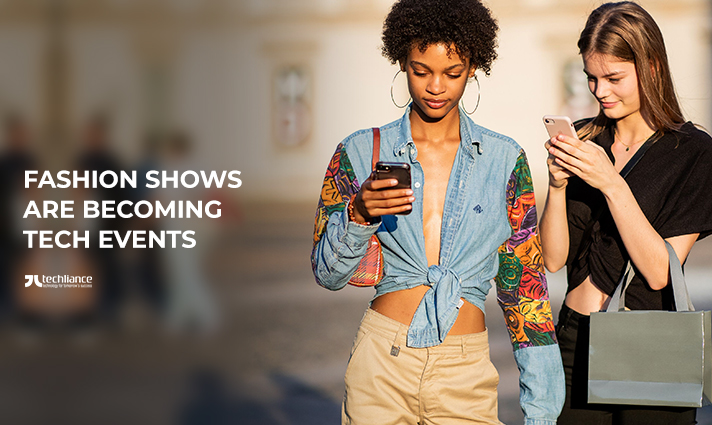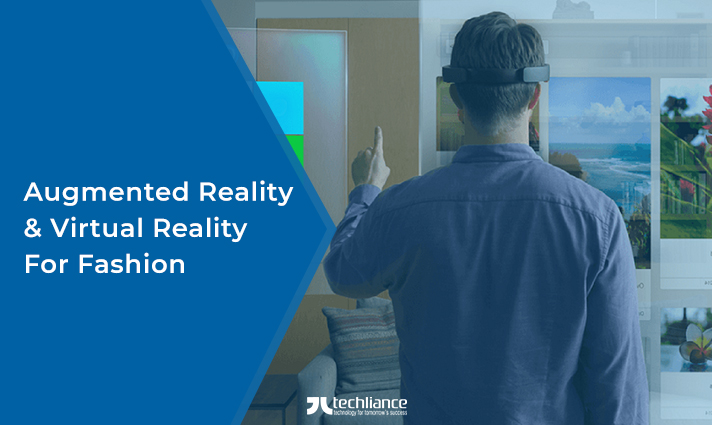The impact of technology in our daily lives is undeniable. There is no business domain that has not been impacted by it including the fashion industry. Many well renowned fashion brands are taking help of technology to advance in their field. As a result, custom software development for fashion industry itself has become the latest trend. These customized websites and mobile applications help designers in creating a digital voice for their brands.
Just like fashion, there are always some trends that are followed by people. Similarly, some digital trends are predominant in the fashion industry as well. We now round up on the top 10 trends followed by fashion industry pertaining to Software Development Services in the Digital era.
- Mobile Commerce for Fashion
- Fashion Shows as Tech Events
- 3D Printing Tools and Related Software for Fashion
- Internet of Things for Fashion
- Multi-Channel Shopping for Fashion
- Augmented Reality and Virtual Reality for Fashion
- Beacons and Geo-fencing for Fashion
- Artificial Intelligence for Fashion
- Mobile Product Life-cycle Management for Fashion
- Mobile Enterprise Resource Management for Fashion

Let’s explore these leading trends in the Fashion and apparel sector prevalent nowadays in detail.
Mobile Commerce for Fashion
Smart phones are not just cool gadgets but they are the biggest allies of eCommerce. Consumer market is easily reachable through online shopping where payments are made digitally. Lately, shoppers prefer making purchases online, citing reasons of convenience and less hassle/time. Fashion industry has shifted focus on Development for Mobile applications that are easy to use and help customer purchase online.
For example, Instagram has a shopping feature that makes shopping as easy as clicking on a liked item to be routed to the product page to make a purchase. These days it’s all about giving convenience and ease to the users so that you are able to expand on your existing clientele. And fashion sector is paying great attention to the world of mobile commerce.
Fashion shows as Tech Events: Blending it together
All fashion brands and designers have their stakes on fashion shows that have to go a whole nine yards in being a memorable spectacle for the audience. As a result, technology is being widely used in creating a memorable runway experience through holographic projections, 360 degree panorama and other tech gimmicks to give an impressive look and feel to the show. There are many types of custom software that are used in programming the event lights, fountains, music and other gadgets during the fashion show. Technology plays a huge part in making the entire event a complete success for the brand.
The fashion brands also prefer to go live through Facebook, Twitter, Instagram etc. to have a broader audience for the show. Special attention is paid to the SEO/SMM planning to raise awareness about the show to make it altogether a global success.

3D Printing Tools and Related Software for Fashion
Fashion industry is all about the look and feel of the attire and garments. The biggest challenge faced by brands in online shopping is how do you convince the customer to purchase an item without actually being able to touch, feel and most importantly without trying it on?
This is where 3D custom software development comes into picture that allows virtual browsing, visually impact-full prints and richly textured fabrics. Retailers are also able to collect data metrics that help them understand consumer buying trends. These software tools also allow businesses to analyze consumer data and see what exactly clicks with their audience for formulating strategies for future.
Internet of Things for Fashion
Fashion industry has also taken on the concept of IoT where 70% of retailers around the globe are incorporating this concept in their business to improve overall customer experience. For example, apparel items will now be having digital capabilities that open communication between retailer and consumer. For example, Nadi X are yoga pants with built-in sensors. This is one such product and there are many more to come in future. IoT driven products will help retailers create a more personalized experience for their customers.
Multi-Channel Shopping for Fashion
Retailers are taking the concept of consumers trying one too many items before purchasing, all too literally. That’s why the concept of multi-channel shopping is being presented to customers by allowing them several choices of similar kind if they are browsing for an item through an online store. In fact, this feature is becoming popular in custom software development of products for the fashion industry.
Augmented Reality & Virtual Reality for Fashion
Both these concepts go hand in hand in technology. Apart from giving users a tantalizing experience through a glimpse of virtual reality (VR), Augmented Reality (AR) gives a combination of user’s own surroundings and mixing it with the product’s features. Both these concepts can help retailers in giving users a look and feel of the product and enhancing the sales. Imagine, high-end customers making instant purchases all because of VR and AR driven products.

Beacons and Geo-fencing for Fashion
The primary objective of incorporating technology in fashion industry is to give a more customized experience to consumers. Beacons are small sensors that are placed in retail stores that connect to smart phones and push content in them. This helps fashion retailers to send out commercial content to the consumer’s mobile device; which allows promotion of fashion brands through dispatching of coupons on mobile devices. Imagine locking a broader segment of relevant customers by offering them a 10% discount coupon on your retail brand. Such technology is powerful and yet helpful in getting more revenue to your business.
Artificial Intelligence for Fashion
Software development for fashion products is heavily reliant on collection and analysis of customer data. This data helps in understanding what the general customer likes and dislikes. On basis of this information, retailer can provide personalized shopping experience to the customers. The data can also be helpful in predicting future trends and shopping patterns for customer segments. For example, the products built-in with AI have the capability to figure out the months in which maternity wear is most browsed and purchased by women. This will help fashion brands come up with whole maternity lines that are comfortable and wearable by expecting mothers in the duration of only those months as predicted by the software.
This is only one example – tip of the iceberg, while this predictive software can be used for capturing large scale audience as per the data analysis. Another example could be the kind of colors browsed and purchased by teenagers before high-school opens after summers. Such information can be used for designing products that are more related for the consumers.
Mobile Product Life-cycle Management for Fashion
Product life-cycle management (PLM) is one of the most important aspects pertaining to fashion and apparel industry. The last few years have witnessed a mobile version of PLM that has helped in management of overall operations and logistics for brands globally. Fashion industry needs to move in an accelerated speed with constant communication between various stakeholders. With the help of a Mobile PLM, it is possibly to carry out important tasks and manage workflows in real-time. Mobile PLM has brought the concept of automation in the fashion industry, which leads to better visibility of data along with time management of tasks.
Mobile Enterprise Resource Management for Fashion
Fashion industry is greatly benefiting from Mobile ERP applications that highlight live KPI dashboards, expense reporting and other important information to keep the businesses up and running in a smoothly manner. When we talk about vendor, inventory and procurement management, these aspects play a huge role in the fashion industry. Any slippage on the quantity or miscommunication with the vendor can lead to an emergency situation. Through Mobile ERP app, the business management side of any retail brand is effectively handled. Therefore, one of the most sought-after custom fashion technology solutions is a Mobile ERP.
Final Words
Fashion industry has been taken over by technology just like all other industries. In a few years, these trends will be embraced by the entire industry, leading way for other trends to follow. Upcoming and established brands can upscale their game with Web development solutions or mobile-based apps. Contact with Techliance, a custom IT Services firm for a free discussion and get a detailed quote today.




